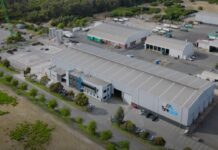
The Australian government has called on researchers and business leaders to provide insights on how best to leverage critical technologies to protect the national interest.
Consultation for the List of Critical Technologies in the National Interest is expected to clarify the technologies the government considers vital for Australia’s current interests or have the potential to become critical within the next decade.
Ed Husic, minister for industry and science, explained the significance of promoting and protecting Australia’s critical technologies to accelerate the country’s productivity growth and create well-paying jobs.
“It is vital we understand and send a clear signal about what technologies we should be focusing on and where our strengths lie – and that is exactly what this consultation is all about,” Husic said.
Identifying technologies will play a vital role in the country’s national industrial and scientific progress, Husic noted, and the list would provide the focus for further discussions around investment and collaboration across all sectors of the economy.
The 2022 List of Critical Technologies in the National Interest will build on the list of the previous year, which featured 63 technologies across seven categories: advanced materials and manufacturing; artificial intelligence, computing, and communications; biotechnology, gene technology and vaccines; energy and environment; quantum; sensing, timing, and navigation; and transportation, robotics and space.
Husic said the feedback solicitation is part of the government’s efforts to reach 1.2 million tech jobs by 2030, as well as securing supply chains and promoting Australia as a “secure destination of excellence for investment, development and adoption of critical technologies.”
“The Government is also investing $1 billion in critical technologies as part of the National Reconstruction Fund, to build our strategic capability and power the economic growth we need to create jobs,” Husic added.
Businesses and researchers have until 30 Sept to submit their feedback.



















